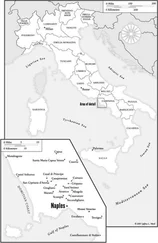Eric Ambler - Journey Into Fear
Здесь есть возможность читать онлайн «Eric Ambler - Journey Into Fear» весь текст электронной книги совершенно бесплатно (целиком полную версию без сокращений). В некоторых случаях можно слушать аудио, скачать через торрент в формате fb2 и присутствует краткое содержание. Год выпуска: 1940, ISBN: 1940, Издательство: Knopf, Жанр: Шпионский детектив, на английском языке. Описание произведения, (предисловие) а так же отзывы посетителей доступны на портале библиотеки ЛибКат.
- Название:Journey Into Fear
- Автор:
- Издательство:Knopf
- Жанр:
- Год:1940
- ISBN:9780307949967
- Рейтинг книги:5 / 5. Голосов: 1
-
Избранное:Добавить в избранное
- Отзывы:
-
Ваша оценка:
- 100
- 1
- 2
- 3
- 4
- 5
Journey Into Fear: краткое содержание, описание и аннотация
Предлагаем к чтению аннотацию, описание, краткое содержание или предисловие (зависит от того, что написал сам автор книги «Journey Into Fear»). Если вы не нашли необходимую информацию о книге — напишите в комментариях, мы постараемся отыскать её.
Journey Into Fear — читать онлайн бесплатно полную книгу (весь текст) целиком
Ниже представлен текст книги, разбитый по страницам. Система сохранения места последней прочитанной страницы, позволяет с удобством читать онлайн бесплатно книгу «Journey Into Fear», без необходимости каждый раз заново искать на чём Вы остановились. Поставьте закладку, и сможете в любой момент перейти на страницу, на которой закончили чтение.
Интервал:
Закладка:
“There is that to be said for it, I suppose. Will you have some of this wine?”
“I don’t think so, thank you.”
“Yes, you’re wise. The best Italian wines never leave Italy.” He dropped his voice. “Ah! Here are the other two passengers.”
They looked like mother and son. The woman was about fifty and unmistakably Italian. Her face was very hollow and pale and she carried herself as if she had been seriously ill. Her son, a handsome lad of eighteen or so, was very attentive to her and glared defensively at Graham, who had risen to draw back her chair for her. They both wore black.
Haller greeted them in Italian to which the boy replied briefly. The woman inclined her head to them but did not speak. It was obvious that they wished to be left to themselves. They conferred in whispers over the menu. Graham could hear José talking at the next table.
“War!” he was saying in thick, glutinous French; “it makes it very difficult for all to earn money. Let Germany have all the territory she desires. Let her choke herself with territory. Then let us go to Berlin and enjoy ourselves. It is ridiculous to fight. It is not businesslike.”
“Ha!” said the Frenchman. “You, a Spaniard, say that! Ha! That is very good. Magnificent!”
“In the civil war,” said José, “I took no sides. I had my work to do, my living to earn. It was madness. I did not go to Spain.”
“War is terrible,” said Mr. Kuvetli.
“But if the Reds had won …” began the Frenchman.
“Ah yes!” exclaimed his wife. “If the Reds had won.… They were anti-Christ. They burnt churches and broke sacred images and relics. They violated nuns and murdered priests.”
“It was all very bad for business,” repeated José obstinately. “I know a man in Bilbao who had a big business. It was all finished by the war. War is very stupid.”
“The voice of the fool,” murmured Haller, “with the tongue of the wise. I think that I will go and see how my wife is. Will you excuse me, please?”
Graham finished his meal virtually alone. Haller did not return. The mother and son opposite to him ate with their heads bent over their plates. They seemed to be in communion over some private sorrow. He felt as if he were intruding. As soon as he had finished he left the saloon, put on his overcoat and went out on deck to get some air before going to bed.
The lights on the land were distant now, and the ship was rustling through the sea before the wind. He found the companionway up to the boat deck and stood for a time in the lee of a ventilator idly watching a man with a lamp on the well deck below tapping the wedges which secured the hatch tarpaulins. Soon the man finished his task, and Graham was left to wonder how he was going to pass the time on the boat. He made up his mind to get some books in Athens the following day. According to Kopeikin, they would dock at the Piræus at about two o’clock in the afternoon, and sail again at five. He would have plenty of time to take the tram into Athens, buy some English cigarettes and books, send a telegram to Stephanie and get back to the dock.
He lit a cigarette, telling himself that he would smoke it and then go to bed; but, even as he threw the match away, he saw that Josette and José had come on to the deck, and that the girl had seen him. It was too late to retreat. They were coming over to him.
“So you are here,” she said accusingly. “This is José.”
José, who was wearing a very tight black overcoat and a grey soft hat with a curly brim, nodded reluctantly, and said: “Enchanté, Monsieur,” with the air of a busy man whose time is being wasted.
“José does not speak English,” she explained.
“There is no reason why he should. It is a pleasure to meet you, Señor Gallindo,” he went on in Spanish. “I very much enjoyed the dancing of you and your wife.”
José laughed rudely. “It is nothing. The place was impossible.”
“José was angry all the time because Coco-the negress with the snake, you remember? — had more money from Serge than we did, although we were the principal attraction.”
José said something unprintable, in Spanish.
“She was,” said Josette, “Serge’s lover. You smile, but it is true. Is it not true, José?”
José made a loud noise with his lips.
“José is very vulgar,” commented Josette. “But it is true about Serge and Coco. It is a very drôle story. There was a great joke about Fifi, the snake. Coco was very fond of Fifi, and always used to take it to bed with her. But Serge did not know that until he became her lover. Coco says that when he found Fifi in the bed, he fainted. She made him increase her wages to double before she would consent to Fifi’s sleeping alone in its basket. Serge is no fool: even José says that Serge is no fool; but Coco treats him like dirt. It is because she has a very great temper that she is able to do it.”
“He needs to hit her with his fist,” said José.
“Ah! Salop!” She turned to Graham. “And you! Do you agree with José?”
“I have no experience of snake dancers.”
“Ah! You do not answer. You are brutes, you men!”
She was obviously amusing herself at his expense. He said to José: “Have you made this trip before?”
José stared suspiciously. “No. Why? Have you?”
“Oh no.”
José lit a cigarette. “I am already very tired of this ship,” he announced. “It is dull and dirty, and it vibrates excessively. Also the cabins are too near the lavabos. Do you play poker?”
“I have played. But I don’t play very well.”
“I told you!” cried Josette.
“She thinks,” said José sourly, “that because I win I cheat. I do not care a damn what she thinks. People are not compelled by law to play cards with me. Why should they squeal like stuck pigs when they lose?”
“It is,” Graham admitted, tactfully, “illogical.”
“We will play now if you like,” said José, as if someone had accused him of refusing a challenge.
“If you don’t mind, I’d sooner leave it until to-morrow. I’m rather tired to-night. In fact, I think that if you will excuse me I shall get to bed now.”
“So soon!” Josette pouted, and broke into English. “There is only one interesting person on the boat, and he goes to bed. It is too bad. Ah yes, you are being very bad. Why did you sit next to that German at dinner?”
“He did not object to my sitting beside him. Why should I object? He is a very pleasant and intelligent old fellow.”
“He is a German. For you no German should be pleasant or intelligent. It is as the French people were saying. The English are not serious about these things.”
José turned suddenly on his heel. “It is very boring to listen to English,” he said, “and I am cold. I shall go and drink some brandy.”
Graham was beginning to apologise when the girl cut him short. “He is very unpleasant to-day. It is because he is disappointed. He thought there were going to be some pretty little girls for him to roll his eyes at. He always has a great success with pretty little girls-and old women.”
She had spoken loudly, and in French. José, who had reached the top of the companionway, turned and belched deliberately before descending.
“He is gone,” said Josette. “I am glad. He has very bad manners.” She drew in her breath, and looked up at the clouds. “It is a lovely night. I do not see why you wish to go to bed. It is early.”
“I’m very tired.”
“You cannot be too tired to walk across the deck with me.”
“Of course not.”
There was a corner of the deck below the bridge where it was very dark. She stopped there, turned abruptly and leaned with her back to the rail so that he was facing her.
Читать дальшеИнтервал:
Закладка:
Похожие книги на «Journey Into Fear»
Представляем Вашему вниманию похожие книги на «Journey Into Fear» списком для выбора. Мы отобрали схожую по названию и смыслу литературу в надежде предоставить читателям больше вариантов отыскать новые, интересные, ещё непрочитанные произведения.
Обсуждение, отзывы о книге «Journey Into Fear» и просто собственные мнения читателей. Оставьте ваши комментарии, напишите, что Вы думаете о произведении, его смысле или главных героях. Укажите что конкретно понравилось, а что нет, и почему Вы так считаете.












